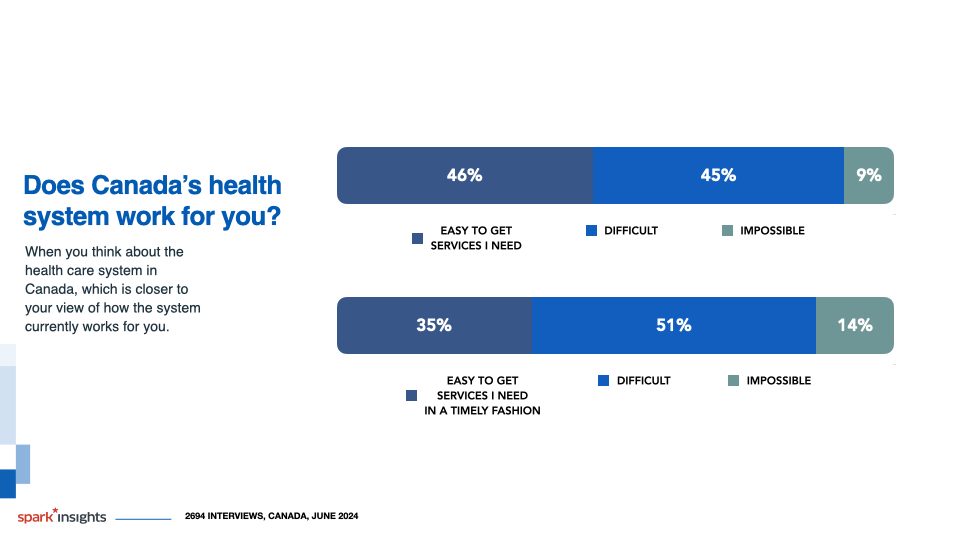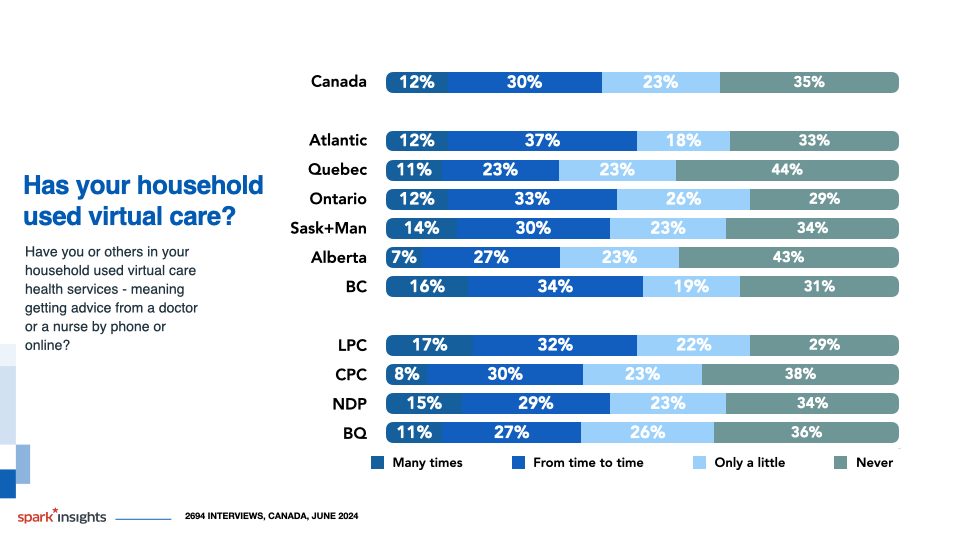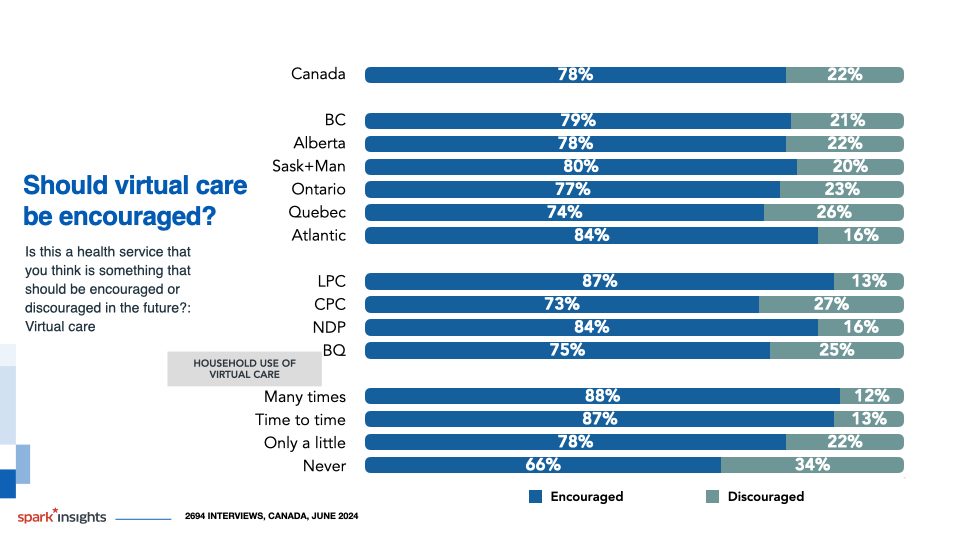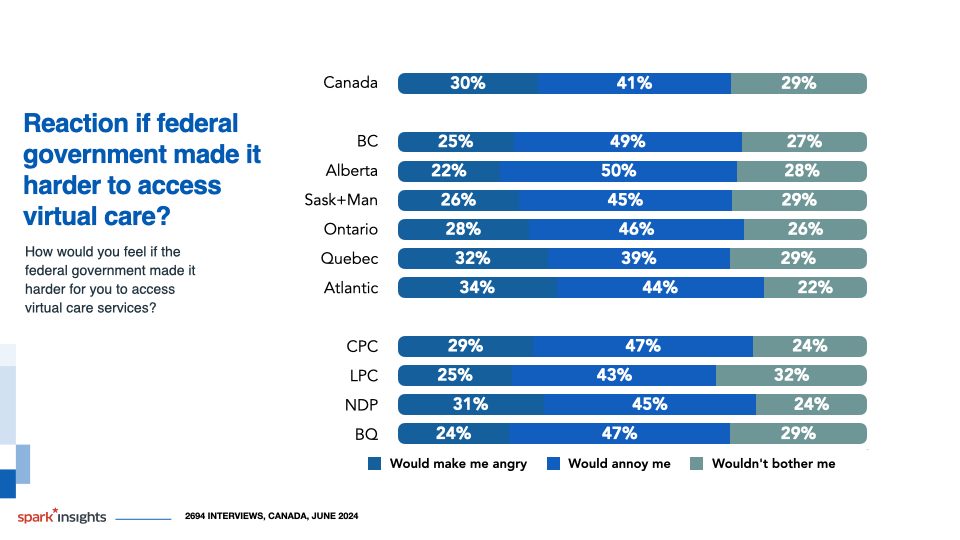Subscribe for more!
Subscribe to our newsletter for insights and articles on wide ranging issues including reputation management, branding, advertising, awareness, advocacy, and communications. You can unsubscribe anytime.
Follow us on social:

More than 70% of voters for every major political party say virtual care options should be encouraged
spark*insights completed national survey research with a large sample of 2,694 adult Canadians, conducted between June 14 and June 20, 2024. The research was conducted on behalf of the Canadian Life and Health Insurance Association. The key findings of this research are the following:




Bruce Anderson, Partner and Chief Strategy Officer: “Many are struggling to get the health care services they need in a timely fashion, including finding a family doctor. Many are also finding it difficult to manage cost of living pressures. Virtual care solutions are popular because they improve access to health counselling, and add convenience – which often means saving money as well.
Canadians have become comfortable with non-government provision of some health services, through workplace or similar benefit plans. They believe that non-government stakeholders in these situations augment and fill gaps in the health system without jeopardizing the fundamental principles of public health care. People want to see expanded use of virtual care and would react badly if the opposite occurred.”
spark*insights is led by Bruce Anderson, one of Canada’s leading and most experienced public opinion researchers. From polling and research to analysis and guidance, we help organizations, uncover the factors driving or influencing public perception to gain valuable insights into the shape and movement of the landscape.